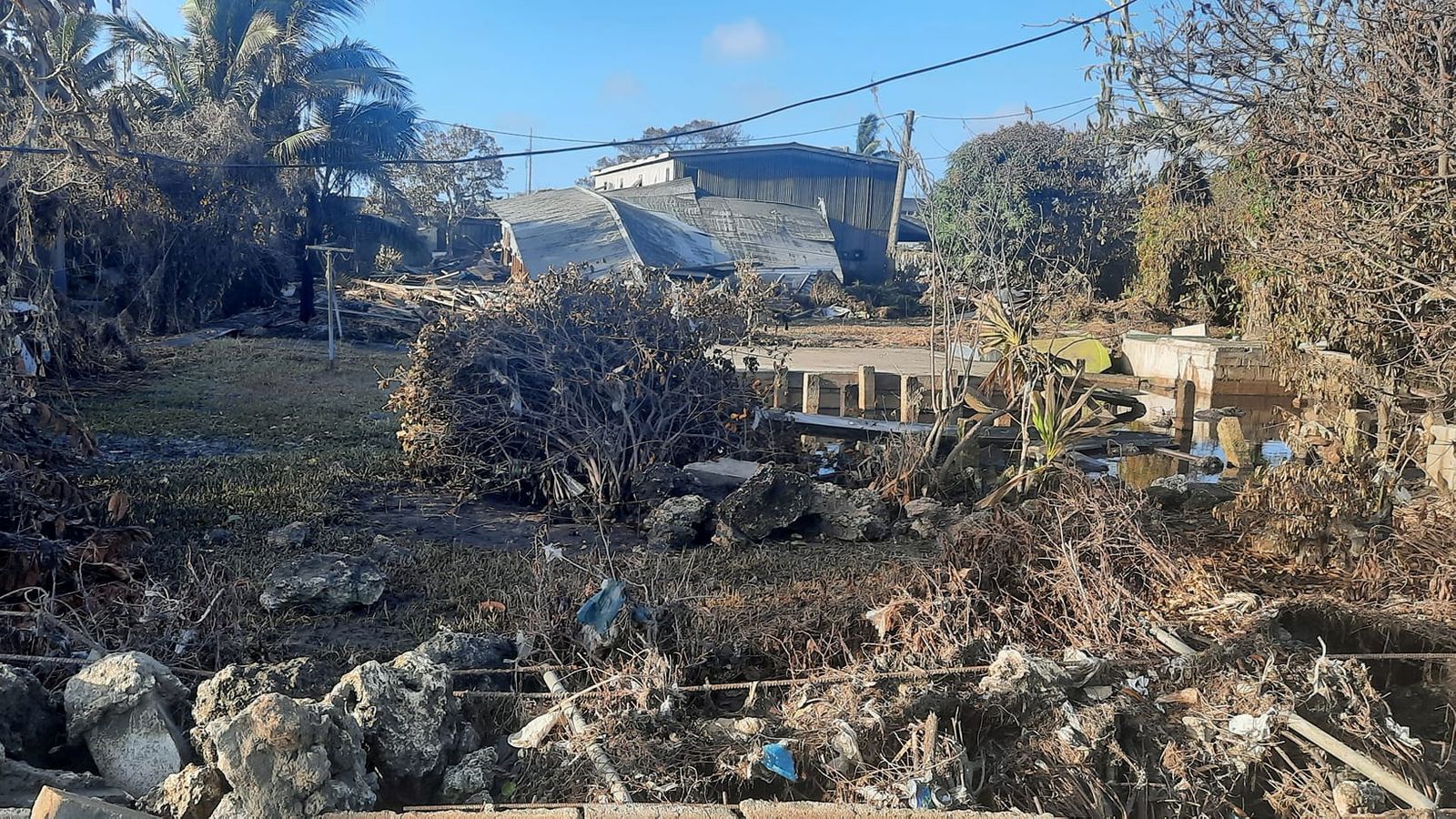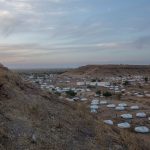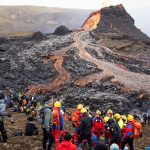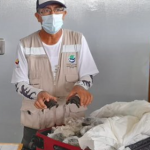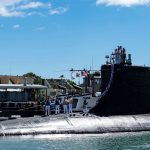The first planes carrying foreign aid have arrived in Tonga five days after the South Pacific island nation was hit by a tsunami following an undersea volcanic eruption.
A state of emergency has now been declared in the wake of Saturday’s eruption and subsequent tsunami which killed at least three people and has devastated communities – completely destroying most of the homes on several islands.
Please use Chrome browser for a more accessible video player
It knocked out communications for the nation of about 105,000 people, cutting it off from the rest of the world, and spoiled most of its drinking water.
The United Nations said that about 84,000 people – more than 80% of the population – has been badly affected by the disaster.
Humanitarian aid and disaster relief supplies
On Thursday, a Royal New Zealand Air Force C-130 Hercules landed at Tonga’s Fua’amotu International Airport after a blanket of volcanic ash was cleared off the runway.
It brought much-needed humanitarian aid and disaster relief supplies including water containers, kits for temporary shelters, generators, hygiene and family kits, and communications equipment.
Tonga volcano eruption: Tsunami sends ‘violent’ waves that cause boat to spill thousands of oil barrels into ocean off Peru
Tonga tsunami: Three islands suffer ‘devastating consequences’ from waves as pictures of volcano devastation emerge
Tonga eruption: Volcano explosion was ‘like bombs going off’, says British man living on Vava’u island
Its arrival was shortly followed by an Australian Globemaster military transport aircraft, ABC reported, carrying water desalination equipment, shelters, kitchens, and a sweeper to help remove ash from the airport.
Some telephone connections have been restored, but it could take another month or so for full internet services to resume.
Please use Chrome browser for a more accessible video player
New photos show devastation
New images posted on social media by the Tongan consulate on Wednesday night showed the extent of the devastation and damage: cars covered in ash and homes flattened and reduced to rubble with children playing among the debris.
“Nuku’alofa, the ‘city’ of The Kingdom of #Tonga, covered in volcanic ash,” it tweeted.
Rachael Moore, Australia’s high commissioner to Tonga, said the loss of property had been “catastrophic”.
“Along the western beaches there is a moonscape where once beautiful resorts and many, many homes stood,” she told Australian radio, adding that drinking water was “an extremely high priority”.
Urgent need for safe drinking water
Marian Kupu, a radio journalist in the capital, told Reuters news agency Tongans feared they may run out of drinking water.
“Each home has their own tanks of water supply but most of them are filled with dust so it’s not safe for drinking,” she said.
“I won’t say we are expecting more deaths but as we are speaking the government is trying to fly to the other islands to check over them.”
Asked if there was enough food, she said: “I can say maybe we can survive for the next few weeks but I’m not sure about water.”
A ship from New Zealand carrying 250,000 litres of water and desalination equipment that will be able to produce 70,000 litres a day is due to arrive on Friday.
Please use Chrome browser for a more accessible video player
Oil spill caused by Tonga volcano
The volcanic eruption sent “violent” waves across the Pacific and caused an Italian-flagged ship loading oil about 6,200 miles away to topple, spilling thousands of barrels into Peruvian waters.
Dozens of fishermen have protested outside Peru’s main oil refinery, La Pampilla, which processes around 117,000 barrels a day and is managed by Spanish company Repsol.
Repsol said it was caused by “the violence of the waves”.
